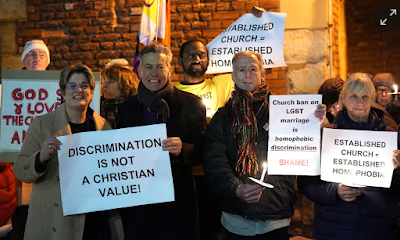Welcoming LGBTIQ Elders
While our LGBTIQ community makes up about 11% of the general population, exact numbers of our LGBTIQ elders in the community are very difficult to attain. Prior to anti-viral medication, the devastating legacy of AIDS has meant many gay men did not live to reach old age, and all LGBTIQ elders have lived through times when ‘being who they are’ was not only deemed unacceptable, but criminal and punishable by imprisonment. In 2003, 85% of the LGBTIQ community in NSW reported that they had experienced bullying, violence or harassment – some at the hands of Police as ‘law enforcement’. Of necessity people remained closeted and relationships were kept secret, and many LGBTIQ elders remain so, even in these more accepting times.
Background
Unfortunately this history of fear and discrimination has ongoing negative consequences for our LGBTIQ elders. The National Lesbian, Gay, Bisexual, Transgender and Intersex (LGBTI) Ageing and Aged Care Strategy highlights LGBTIQ elders as an at-risk population, recognising that:
‘there have been decades of inequitable treatment for LGBTIQ people; many LGBTIQ people have suffered stigma, family rejection and social isolation; and many LGBTIQ people have had a life experience of fear of rejection and persecution, coupled with the impact of potential or actual discrimination.’
Many older LGBTIQ people do not disclose their LGBTIQ status, with approximately 25% not accessing health professionals due to fear of discrimination and 34% hiding their sexuality when they do. Many are nervous to take up options for home help and aged-care services, for fear of discrimination; some fear having to ‘come out’ again, while others think they would need to ‘go back into the closet’ on order to access aged-care accommodation – particularly in church-based services. This is of concern for older LGBTIQ people who may have little or no family support, and particularly so if they have been living secretly with their partner and one of the couple dies. Unfortunately 12% of lesbian, gay and bisexual people have no family members they can rely on compared to 6% of heterosexuals.
The history of LGBTIQ people and the Church in Australia is no less painful, and it continues to take immense courage to ‘come out’ as a member of the LGBTIQ community in many Church congregations, for fear of prejudice and discrimination. For these and other reasons you may be unaware that a LGBTIQ elder is a member of your church congregation. Many LGBTIQ elders (and non-elders) are outside the church, and are rightly very suspicious (if not outright antagonistic) towards it and Christianity, due to their experiences having been predominately negative ones. However some feel a deep sense of loss, miss communal worship, and long to connect or re-connect and find a spiritual ‘home’ where they feel they belong.
Here are some steps in welcoming LGBTIQ Elders:
Empathise
Lament
Dialogue
Engage
Respect
Serve Empathise
Start with self-education, awareness and understanding:
• National LGBTI Health Alliance https://lgbtihealth.org.au/ageing/
• ‘Come out’, so our elders can feel safe to do so (if they wish) E.g. Display affirmative symbols like rainbow signage;
• Commemorate special LGBTIQ ‘days’ with prayers, liturgy and/or celebration.
• Affirm all LGBTIQ elders with love, acceptance and celebration.
Lament
• Lament/ express sorrow that many LGBTIQ elders are absent or hidden within the church, due to negative experiences of hate, judgement and exclusion.
• Confess our failings to love as Jesus loved, and the consequent pain this has wrought on our LGBTIQ elders. e.g. ‘Equal Voices’ National Apology; and Transgender Remembrance Day
• Seek forgiveness for our lack of understanding, inclusion and welcome
Dialogue
• Go to where people are; don’t expect them to come to you
• Listen: stories, experiences, needs (ensure confidentiality)
• Learn: lessons in community, networking, solidarity, celebration
Engage
• Link with local LGBTIQ groups and aged-care organisations
• Involve LGBTIQ elders in your congregation (if/as they wish)
• Ask: Is there anything you would like us to do with/for you?
Respect
• Honour our LGBTIQ elders: their truths, loves, struggles, grief, pain, wisdom
• Recognise LGBTIQ elders as role-models for all younger people, not just
LGBTIQ
• Revere LGBTIQ elders as God’s grace and gift to us all, in this time and place
Serve
• Pastorally care for individuals
• Practically support local LGBTIQ communities
• Continue to work for inclusion and social justice.





No comments: